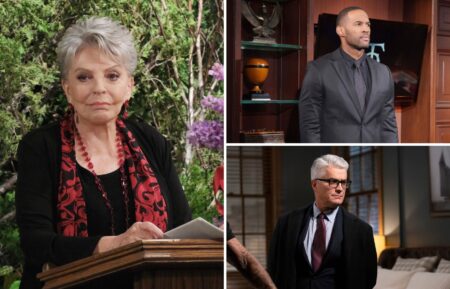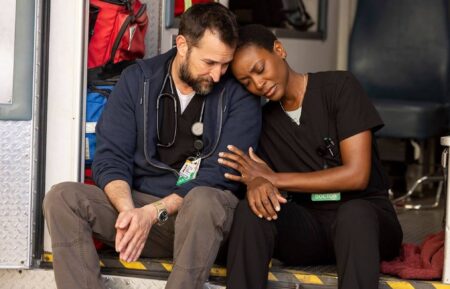Abby Griffin (and Marcus Kane) Deserved Better on ‘The 100’
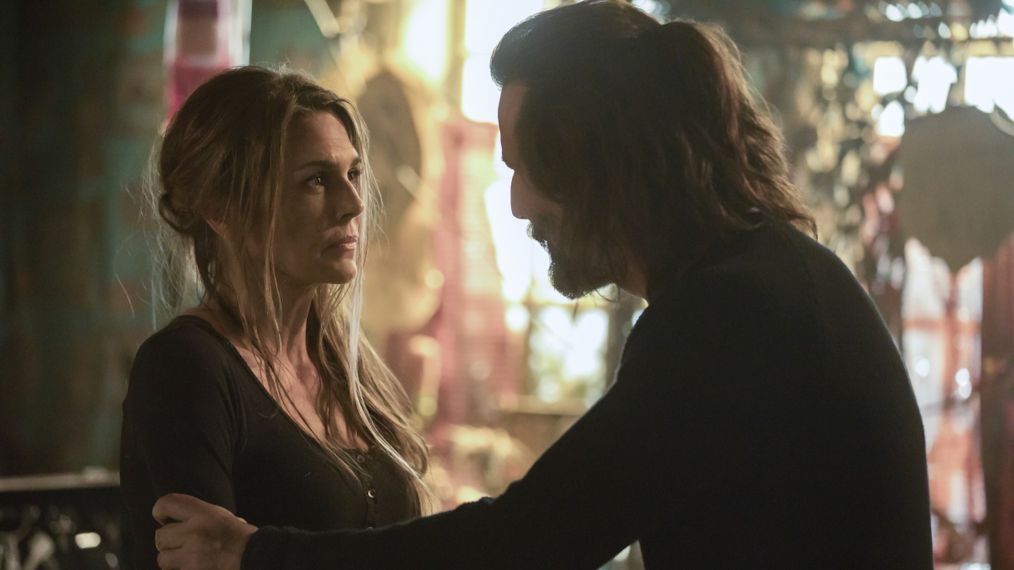
Opinion
[WARNING: The following contains MAJOR spoilers for The 100 Season 6.]
“And now, for a message of hope. Everything is garbage… Never love anything. That’s the lesson.”
While these are the words of Brooklyn Nine-Nine’s Raymond Holt, they’re unfortunately prophetic for two of The 100’s Season 1 characters. Since the show’s pilot episode, Abby Griffin (Paige Turco) had championed the idea that hope was everything, and as long as their people had it, they could survive. For a little while, that seemed to be true. She even managed to get the hard-nosed, by-the-book Marcus Kane (Henry Ian Cusick) to see things her way.
They fell in love. They fell apart. They came back together. And then they both died. So, in the end, was hope really everything? It didn’t save him, and it certainly didn’t save her.
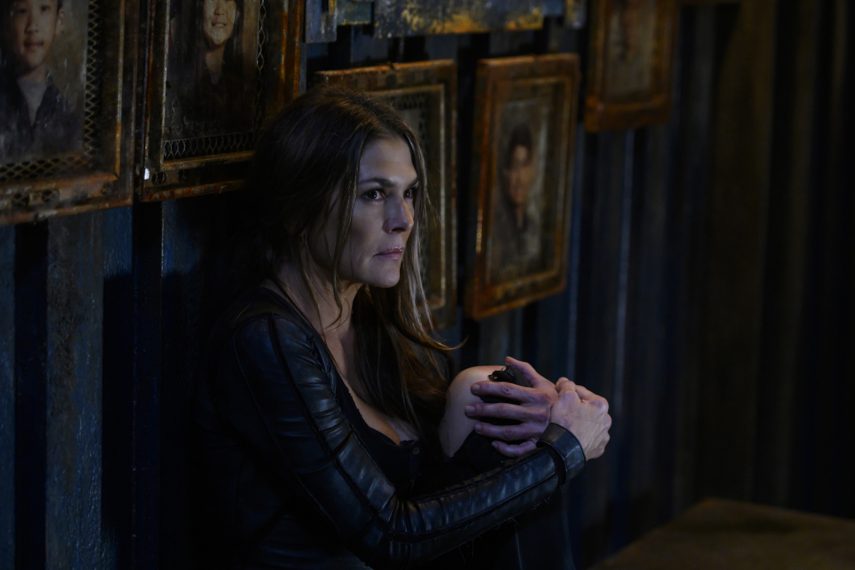
Diyah Pera/The CW
Here are some of the things I’m pondering as I try to piece together why the show has jettisoned its final two series regular “adults”—and why I think it could’ve chosen a better route for their farewell.
This is a show known for killing characters. But did these two have to die?
This is probably the biggest question running through fans’ heads after “What You Take with You” and “Adjustment Protocol.” Simply put, no, their characters weren’t destined for death. But if death was the only option, they could’ve gone out as a unit. It’s a little baffling that they died so close together (didn’t Abby die just a day or two after Kane?), and yet so far apart.
Her death robs Kane’s of some of its impact not only because the show went right back to creating Nightbloods, but because it ended up not mattering for Abby’s character. He insisted she was strong enough to survive in his absence, that she could find her way in the darkness without him by her side. That was… not exactly true, given that she had fewer than fifteen minutes of screentime between his final scene and her own. Looking back, it feels like an empty tease for a story never told: A hint of a larger redemption that wasn’t happening.
Kane and Abby also could’ve seen a happy ending in which they lived out their lives together off-screen, much like Monty and Harper did—which proves this show is capable of giving painless endings to beloved characters, when it wants to.
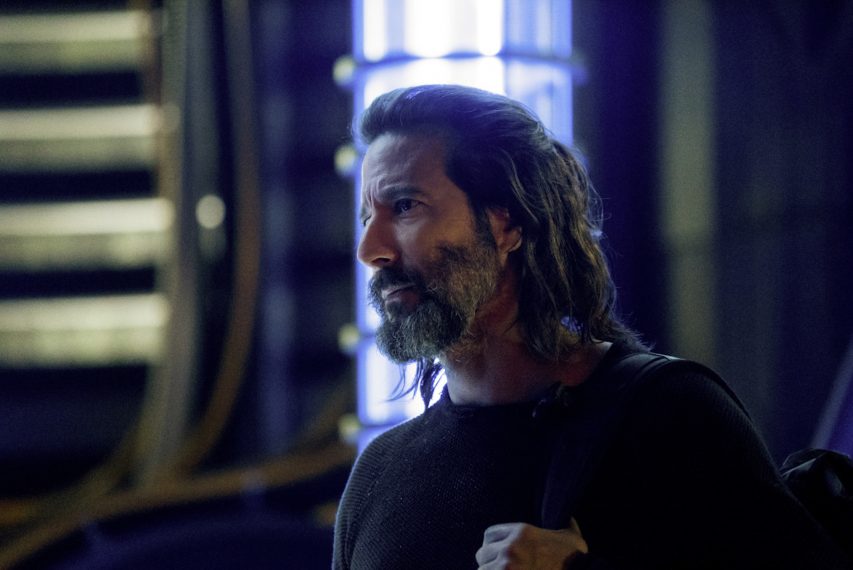
The CW
Why couldn’t Kane and Abby have “happily ever after”?
The obvious answer is because killing them causes more pain, and that pain will drive the story. Though they can’t be compared in terms of storytelling or effect on a community, there are echoes of Lexa’s death in Abby’s demise. Killing Lexa had a huge impact on Clarke that shook her to her core, and killing Abby will do the same, if not to an even greater extent (no one’s denying that Clarke utterly loved and adored the former Heda here, but Abby was her mom.)
Granted, Clarke spent most of Season 6 suffering and her daughter’s still possessed by Sheidheda, so she’s not at a point where she needs another tragic push to make her interesting. Neither is Raven, who’s presumably still reeling from the loss of her love, Miles “Zeke” Shaw.
But, writing a happy ending that didn’t also end in Kane and Abby’s peaceful deaths would’ve taken some serious narrative work, and could’ve been a little clunky at times. The writers might’ve thought it’d be awkward to try and explain why Clarke wouldn’t be going to see her mom, or why Abby would quickly and indefinitely leave her daughter, granddaughter, adoptive daughter and best friend.
Or maybe they didn’t want to recycle Monty and Harper’s conclusion (though quite honestly, two adults over the age of 40 who decide they’re done with all the fighting and killing sounds realistic to me. Let the kids handle that s**t.)
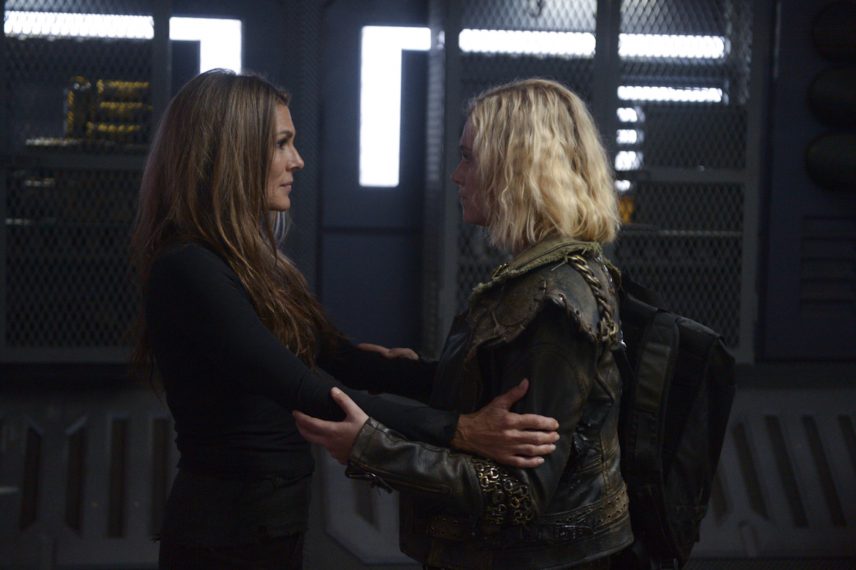
The CW
Abby’s death was odd, and it didn’t fit the importance of her character.
“The Blood of Sanctum” shoved her body out an airlock (via her daughter, no less), but Abby’s first death was the one that highlighted her character. Unfortunately, it felt a bit rushed, since she died in the middle of an episode without so much as the Traveler’s Blessing said in her honor. Pretty much every other major character death—Finn, Lexa, Lincoln, Jasper, Jaha, Kane, etc.—came close to the episode’s end, with a suitable amount of impact. Sure, Abby got a moment with pretty much everyone she cared about, but that hardly packed the punch of Lincoln’s final words to Octavia or Lexa’s admission that Clarke was right.
In addition, while her character was oft polarizing for fans, there’s no denying her significance. Abby’s death concluded the story of one of the show’s first-introduced major characters, but it felt like a bullet point crossed off a list to hurry the plot along to something else, which is a shame. A few flashback scenes of her with the people she loved doesn’t carry the emotional weight of some well-chosen final words. The single tear that trailed down her cheek was impactful to be sure, but not befitting for the second major character we ever saw on the Ark, way back when Clarke was being sent to the ground. Abby Griffin deserved a moment that burns in fans’ memories the way Lexa’s, Lincoln’s, Jasper’s and others still do.
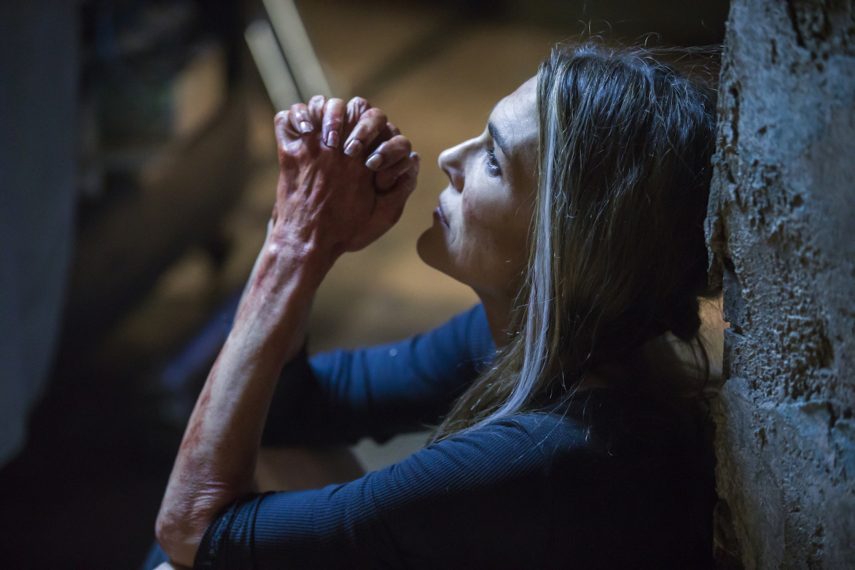
The CW
Abby was always suffering. Why?
Past Season 3, Abby’s storylines have been somewhat controversial, largely because they became a downward spiral that got bleaker and bleaker. Turco portrayed Abby’s internal conflict and external struggles masterfully. My gripes with her storyline have nothing to do with the actress; I think she should be commended for her portrayal of Abby. As Doctor Griffin went from leader, to Chancellor, to ailing mother desperately trying to protect her child, to addict, to recovering addict, to addict again in a new form, her performances were nuanced and intricate, inspiring sympathy and empathy.
In the end, Abby was human, and humans aren’t always good despite their best intentions—though it wasn’t for lack of trying.
But it’s hard now, looking back, not to ponder what it was for. When she helped take Gavin’s body for Kane and he ended up killing himself, many assumed the only place for Abby to go was up—she’d hit rock bottom and would begin the redemption arc that had been seasons in the making. Instead of telling that story, The 100 gave her a few lines that tied up loose ends and bade her farewell. Her constant struggle with her demons ended with her neither conquering nor totally succumbing to them, concluding her arc with the same cloudy dreariness it had struggled to break free from since the ALIE storyline.
There’s something unsettling about the message Abby’s unfinished story sends. It echoes Jasper’s death in Season 4, implying that life is a cycle of doom broken only by its end, that hope is not everything. And that, given where her character started, is the biggest tragedy of all.
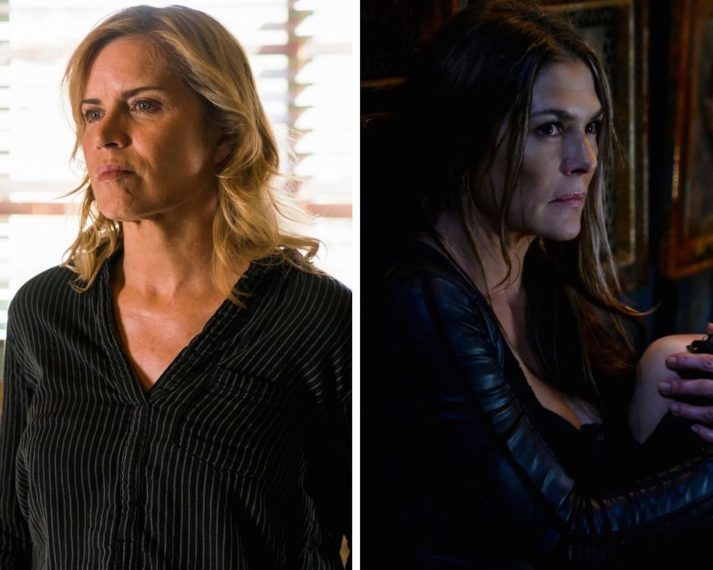
The Walking Dead‘s Madison Clark (Kim Dickens) and Abby Griffin (Paige Turco) (AMC; The CW)
Is killing off strong, middle-aged women in television starting to be its own trope?
My heart goes out to Fear The Walking Dead fans who were also Abby Griffin fans, because there were plenty of unfortunate parallels between Abby’s and Madison Clark’s demises. Both were unique in today’s television landscape in that they were powerful, middle-aged female characters on genre shows. Both were leaders who commanded respect. Both died in situations that could’ve easily been avoided and felt out of character (Abby was smart enough to know something was up with Russell when he asked to talk to her alone after she openly threatened him, Madison was definitely smart enough to find a way out of the Dell Diamond). And both deaths left fans scratching their heads and saying, “Wait, what? That was it?”
Now this article isn’t equating the deaths of these characters to more harmful or prevalent tropes. But it’s worth noting that Abby’s death fits into a troubling trend of shows killing off middle-aged female characters, often to allow men, or younger women, more time in the spotlight. Madison was likely ousted to make room for Morgan Jones and other Walking Dead crossovers, who have been, at this point, all male; Abby, presumably to give the wonderful, but younger, Clarke and Raven more agony to endure as they’ll bond over the loss of the woman they both called, or thought of as, “mom.”
Yes, there are strong middle-aged women in genre TV that are still kicking a**. The Walking Dead’s Carol Peletier and The Expanse’s Chrisjen Avasarala come to mind, along with Joyce Byers from Stranger Things, but unfortunately, they seem to be exceptions rather than examples. The Hollywood Reporter, after Madison’s death, wrote an excellent article about this pattern.
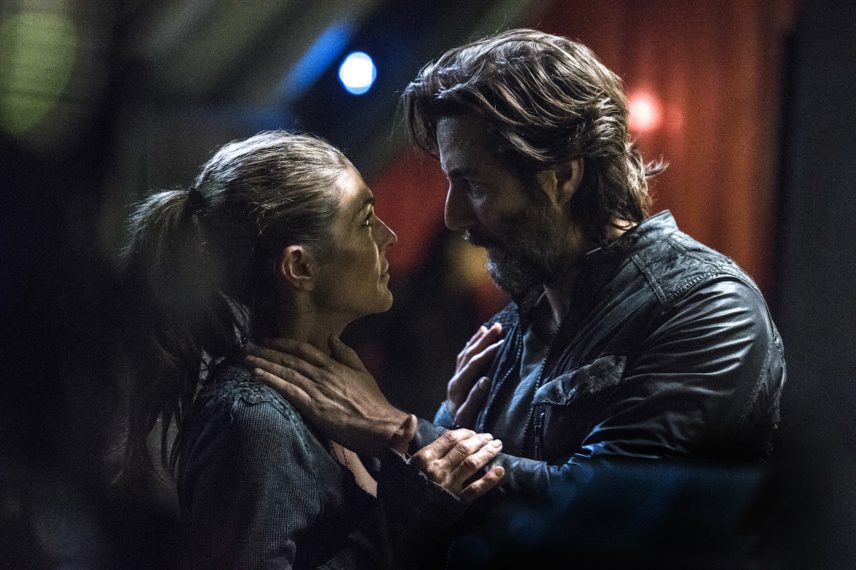
The CW
Final Thoughts
Setting aside my gripes with their deaths, I can find some OK-ish and even good things about the way the show handled Kane and Abby’s final episodes. Kane, at least, went out in a way that felt true to his character—he got to tell Abby he loved her and died a self-sacrificial death while doing The Right Thing, which was all he ever wanted to do. Whether or not having him succumb to his self-sacrificing tendencies was a good choice could be another article completely, but if nothing else, his final moments were emotional, poignant and authentic to the man he’d always been.
The shot of his and Abby’s hands pressed against the airlock glass was beautiful and haunting. It would’ve been nice if he’d had one last scene with Bellamy Blake, considering they’d once been close, but with Cusick’s schedule that might have been impossible. Bottom line: When Indra cries, we all cry.
As far as Abby’s death… well, at least she got some amount of closure. She got to tell Clarke she loved her, and she knew her daughter was all right (how horrible would it have been if she died thinking Clarke was Josephine?). She and Raven finally reconciled, mending a relationship that had been rocky for seasons. To some extent, she seemed at peace with herself and went back to being the woman she’d been in Season 1: She defied Russell’s orders, putting her life on the line to keep Madi and the people she loved safe.
But she’ll never have any resolution with Octavia, which seems like a missed opportunity given how intertwined their redemptions seemed to be. And we’ll never get to see her be a true grandma or caretaker for Madi, which, in hindsight, might’ve been too sweet a concept for this show.
I’d be lying if I said I’m not disappointed with the way in which Abby’s story ended, and that despite her last-minute reconciliations with the people she loved, it ended with her as an echo of herself. So if the show won’t honor her by saying it, I will. In peace, may you leave this shore. In love, may you find the next. Safe passage on your travels, until our final journey to the ground. May we meet again.
The 100, Final Season, 2020, The CW







